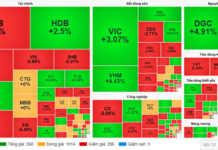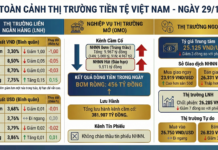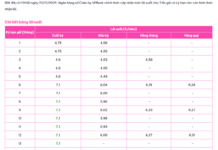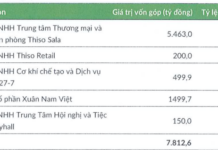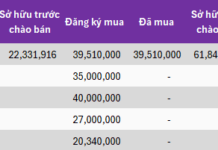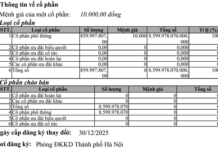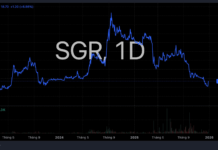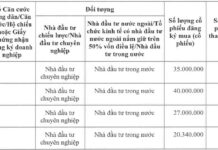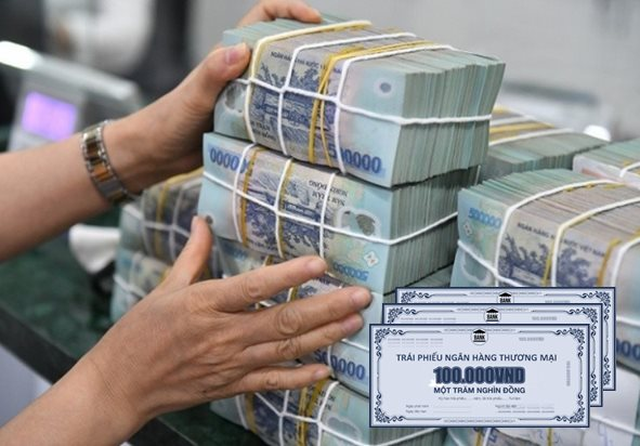Bank bonds are a safe investment option, offering attractive returns compared to other investment avenues at present. Many banks have been issuing public bonds to raise capital, offering higher interest rates than regular savings accounts.
Recently, Agribank offered 10,000 billion VND in public bonds for 2024 with an interest rate of 2% above the reference rate, totaling nearly 7% per annum. HDBank issued a batch of 7-year public bonds with an interest rate of 2.8% above the reference rate, totaling approximately 7.5% per annum.
BVBank is also preparing to offer a batch of 6-year bonds with a first-year fixed interest rate of up to 7.9% per annum. From the second year onwards, the bond interest rate will be 7.2% or higher.
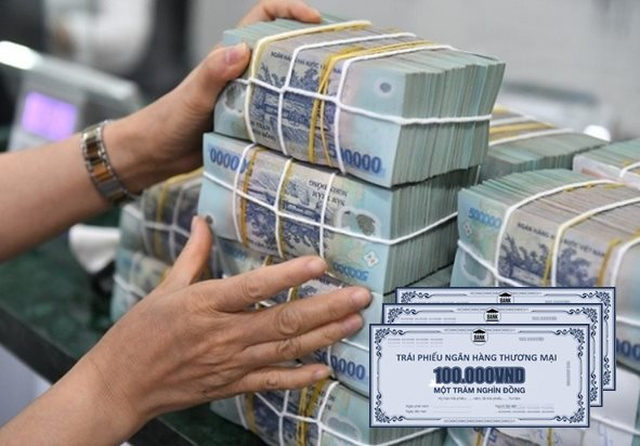
Bank bonds offer higher interest rates than savings accounts.
According to statistics from the Ministry of Finance, in the first six months of this year, out of the total of 110,200 billion VND in corporate bonds issued privately, credit institutions accounted for 63.2% with 69,600 billion VND. In terms of investor structure, institutions purchasing corporate bonds in the primary market accounted for 94.8% of the issuance volume, concentrated in credit institutions (53.5%) and securities companies (21.9%). Individual investors purchased about 5.2%. The Ministry also stated that the average interest rate of these issuances was 7.41% per annum, with an average term of 3.78 years.
Economic expert Dinh The Hien stated that bank bonds are a safe and effective investment channel compared to regular savings accounts at present. Currently, the interest rate for term deposits over 12 months at state-owned commercial banks is around 4.7% per annum, while joint-stock commercial banks offer rates of about 5-5.5% per annum.
Bank bonds and savings accounts are similar in nature as they both involve lending money to banks, which are obligated to pay interest on the amount. The redemption process for bonds at maturity is also similar to withdrawing money from a savings account after the term ends.
Mr. Vo Dai Luoc, former Director of the Institute of World Economics and Politics, stated that compared to many other industries, especially real estate, bank bonds are considered relatively safe. Therefore, even with relatively long bond terms of 3-5 years and interest rates of 5-6%, credit institutions can still attract investors.
The expert noted that issuing long-term bonds in the context of the current low-interest-rate environment is a suitable strategy for banks. This way, they can mitigate the risk of increasing capital costs as interest rates show signs of rising again.
Regarding the impact on the overall market, the promotion of bond issuance among banks has contributed to the recovery of the bond market after several violations that shook investor confidence.
However, Mr. Luoc believes that the bond channel needs to be promoted better by other industries, including real estate. If it remains a predominantly banking-focused arena, the effectiveness of this capital mobilization channel may not be fully realized, limiting its positive impact on economic recovery.
Additionally, the expert reminded investors that regardless of the issuer, whether it is a bank or another organization, investors should be fully aware of the risks associated with potential delays in payments and other commitments.
Which bank offers the highest interest rate for online savings in early February 2024?
Beginning February 1st, 2024, several banks have been adjusting their interest rates downwards for savings accounts ranging from 1 to 24 months. Based on a survey conducted across 16 banks, the highest annual interest rate for online savings deposits at a 6-month term is 5%, while for a 12-month term, it is 5.35%.
Banks Sacrificing Profits to Support the Economy
In 2023, the question “which bank has the lowest interest rates?” is being talked about more than ever. With the prevailing difficult economic situation affecting individuals and businesses, in line with the directive of the State Bank of Vietnam (SBV), banks have unanimously sacrificed their profits by reducing lending rates and introducing credit packages with interest rates as low as 0%.


